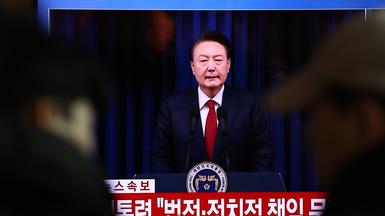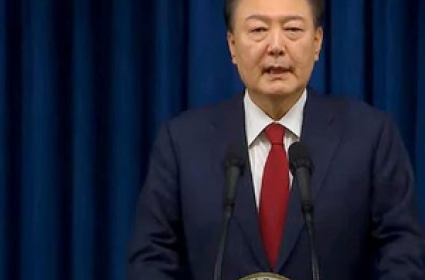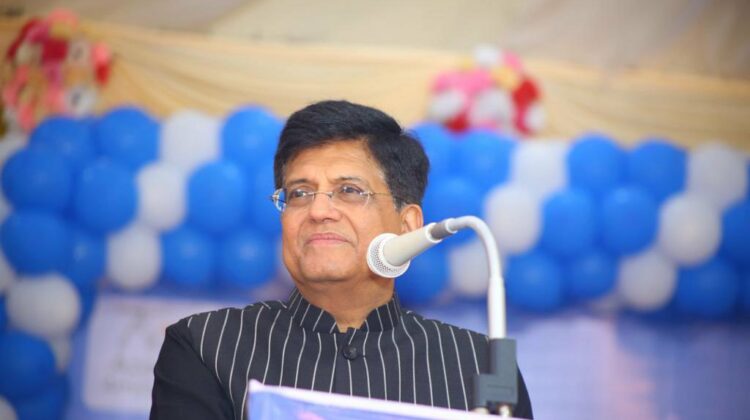South Korean President Yoon Suk Yeol issued a public apology on Saturday for his brief attempt to impose martial law, vowing to accept any legal repercussions that may follow. His apology came just ahead of a parliamentary vote on his potential impeachment.
 In a televised address, Yoon expressed deep regret for causing public alarm and inconvenience, stating that he would never seek to impose martial law again. He added that his political future would be determined by his party, the People Power Party (PPP), and committed to facing any legal or political consequences.
In a televised address, Yoon expressed deep regret for causing public alarm and inconvenience, stating that he would never seek to impose martial law again. He added that his political future would be determined by his party, the People Power Party (PPP), and committed to facing any legal or political consequences.
Following his speech, PPP leader Han Dong-hun called for Yoon’s resignation, arguing that he was no longer fit to hold office. Opposition lawmakers subsequently filed an impeachment motion, though it remained unclear whether they could gather the necessary two-thirds majority to pass it. The opposition holds 192 out of 300 seats in the National Assembly, needing at least eight votes from the PPP to succeed.
Yoon’s actions, which included declaring martial law and surrounding the National Assembly with armed troops, triggered a political crisis. The opposition contends that this move amounted to a self-coup, using rebellion as grounds for impeachment. Despite these concerns, the PPP voted against impeachment in a recent parliamentary session.
In the wake of the martial law declaration, Han accused Yoon of ordering the arrest of senior lawmakers, including himself, opposition leader Lee Jae-myung, and National Assembly Speaker Woo Won Shik, on charges of “anti-state activities.” The defense ministry has suspended several key officials, including the defense counterintelligence commander, Yeo In-hyung, and former defense minister Kim Yong Hyun, who is now under investigation for rebellion charges.
The controversy has drawn alarm from international allies, including Japan and the United States, adding to the growing political crisis in South Korea.



